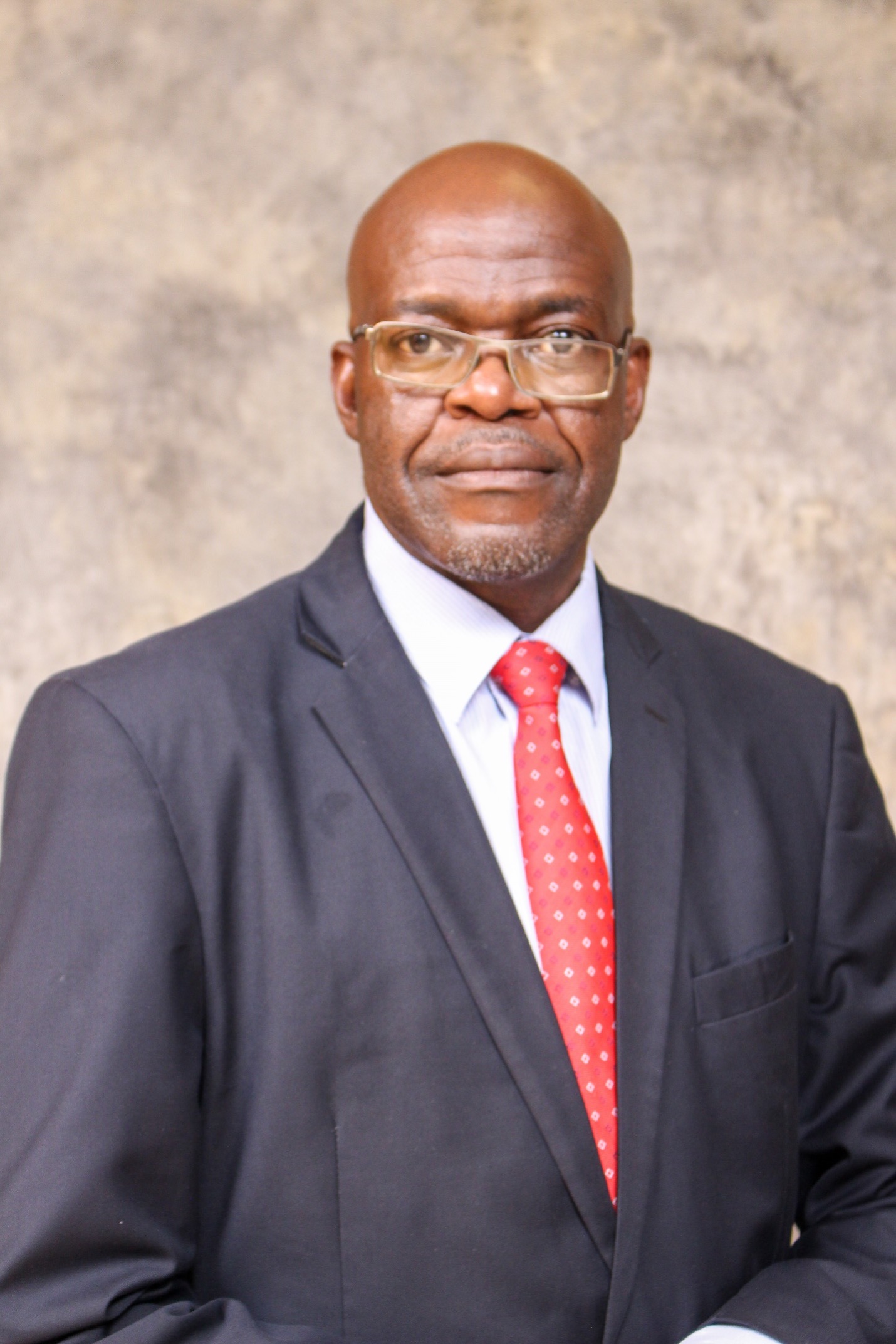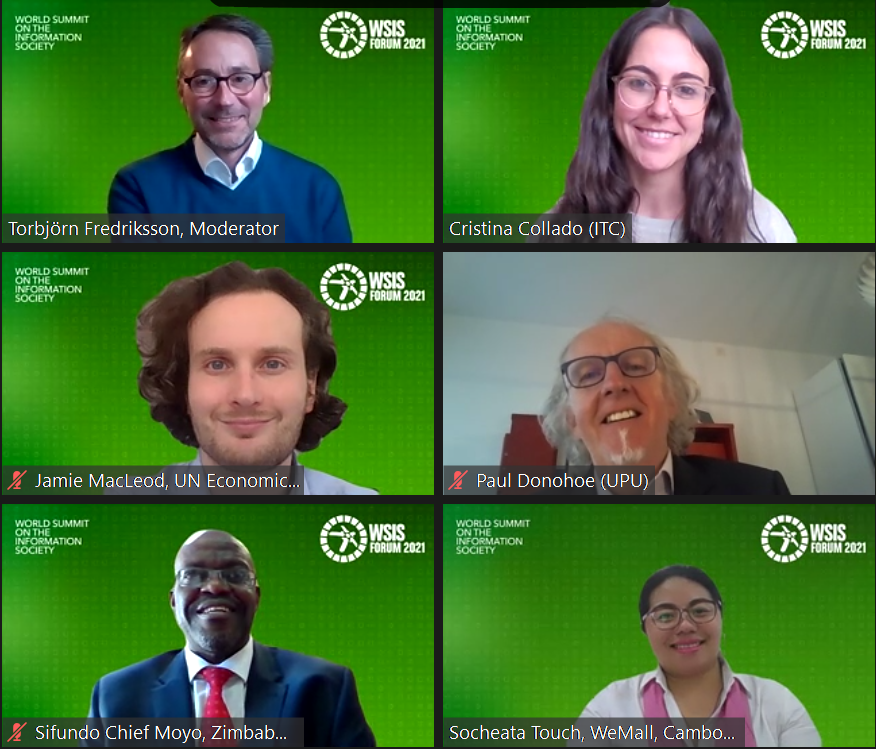ALFM C7: E-Business
United Nations Conference on Trade and Development/Universal Postal Union/International Trade Centre
Session 388
Global and regional implications of COVID-19 on e-commerce
A group of eTrade for all partners joined forces in the midst of the COVID-19 outbreak, with the aim of jointly assessing how the impact of the pandemic was playing out in various regions of the world, what barriers countries and business were facing when trying to leverage digital solutions; what policy responses had been taken; and – not least important – what the international community could do better to reap synergies and enhance global support.
As a result of this collective effort, a global review - and 4 regional reports- have been published highlighting the main efforts and trends affecting the various developing regions to address the challenges brought forward by the COVID-19 pandemic and proposing some mid and long-term policy avenues to be taken into consideration in the recovery phase. The event will offer a targeted dialogue to unveil the main findings at the global level complemented by the sharing of experiences at the regional level.
Draft Programme
Setting the scene: 15 minutes
How the COVID-19 has changed the global trade and e-commerce landscape: findings from the eTrade for all study: Global and regional implications of COVID-19 on e-commerce
- Mr. Torbjörn Fredriksson, Chief of the ICT Policy Section, UNCTAD
Implications of findings: 35 minutes
Harnessing the impact of COVID-19 across regions: main findings and drivers for change.
- Policy level | Mr. Jamie MacLeod, Trade Policy Expert at the United Nations Commission for Africa, and Ms. Socheata Touch, Co-Founder and CEO at WeMall in Cambodia
- Business ecosystem level | Mr. Sifundo Chief Moyo, Post Master General of Zimbabwe Post
- Enterprises and business support organisations level | Mr. Luis Cedeño, E-commerce Manager at the Ministry for Trade and Industry in Panama
Q&A: 10 minutes
Closing, Q&A and key takeaways
- Ms. Cristina Collado Martí, E-commerce Consultant at the International Trade Centre
The event will be moderated by Mr. Torbjörn Fredriksson, Chief of the ICT Policy Section, UNCTAD.

Jamie MacLeod is a Trade Policy Expert of the Africa Trade Policy Center (ATPC) at the UN Economic Commission for Africa (ECA) in Addis Ababa, Ethiopia. He has written and consulted broadly on trade policy issues, including with the World Bank, the European Commission and the Danish International Development Agency, and was formerly a Trade Economist at the Ghanaian Ministry of Trade and Industry. He holds an MSc. in Economics for Development from the University of Oxford, where he was the Snell Scholar.

Socheata Touch is an entrepreneur, business strategist, fund raiser for development project, author, researcher, consultant, feminist, and teacher. She is currently co-founder and CEO of WeMall which is the e-commerce platform for women locally made products in Cambodia. Also, she is Southeast Asia of Woomentum-Social enterprise based in Singapore, she plays a vital role to promote women economic empowerment in the region. Nearly 15 years, her business journey and advice for budding entrepreneurs are warm, practical and down to earth, drawing on lessons in everyday life - she’s a huge advocate of smart gender investments and finding innovative ways to integrate digital transformation in her businesses, publications and other initiatives.
Socheata holds public policy degree from the Victoria University of Wellington, New Zealand and a Fulbright scholar on trade.

Graduated with an MBA in International Marketing from the Latin American University of Science and Technology (ULACIT), Luis has more than 10 years of experience in the implementation of e-business projects for international websites.
He currently works as Head of E-Commerce in the General Directorate of E-Commerce of the Ministry of Trade and Industry of Panama and works with international organizations in programmes aimed at the digitization of MSMEs, in which he actively participates as an advisor, guiding entrepreneurs in the development of e-commerce strategies.

Mr Sifundo Chief Moyo, is the Post Master General of Zimbabwe Post where he is currently championing the transformation of Zimpost to be a digitalised entity. He is an experienced Postal leader whose expertise and passion for postal services has been tapped into by the Universal Postal Union (UPU), the Pan-African Postal Union (PAPU), the Southern African Postal Operators Association (SAPOA) and other international postal bodies. He is a UPU trained Consultant on Postal Reform who was assigned by UPU to work with Governments of Malawi and Ethiopia on their Postal Reforms to produce Blue Prints and Roadmaps for postal reforms in those countries.
Mr Moyo is a holder of an MBA, Bsc. Economics Degree and Advanced Diploma in Transport and Logistics.

Cristina is an E-commerce Consultant at the International Trade Centre. She started her career at the Spanish Economic and Commercial Office for Foreign Affairs in India to support businesses in their internationalisation before joining the International Trade Centre in 2019. Today, she works as an e-commerce international consultant to support small businesses in developing and least developed countries in their digital transformation journey through sustainable e-commerce.

Mr. Torbjörn Fredriksson is the Chief of the ICT Policy Section at the UN Conference on Trade and Development (UNCTAD). He is responsible for UNCTAD's work on ICT, e-commerce and the digital economy. That includes the Digital Economy Report, eTrade for all, the E-commerce Week various capacity-building activities, and the Intergovernmental Group of Experts on E-commerce and the Digital Economy. He joined the UN in 2000. Before joining UNCTAD, he held positions at the Invest in Sweden Agency and the Swedish Ministry of Industry and Commerce. He has an MSc in International Economics from the Stockholm School of Economics.
-
 C7. ICT applications: benefits in all aspects of life — E-business
C7. ICT applications: benefits in all aspects of life — E-business
-
 Goal 1: End poverty in all its forms everywhere
Goal 1: End poverty in all its forms everywhere
-
 Goal 2: End hunger, achieve food security and improved nutrition and promote sustainable agriculture
Goal 2: End hunger, achieve food security and improved nutrition and promote sustainable agriculture
-
 Goal 5: Achieve gender equality and empower all women and girls
Goal 5: Achieve gender equality and empower all women and girls
-
 Goal 8: Promote inclusive and sustainable economic growth, employment and decent work for all
Goal 8: Promote inclusive and sustainable economic growth, employment and decent work for all
-
 Goal 9: Build resilient infrastructure, promote sustainable industrialization and foster innovation
Goal 9: Build resilient infrastructure, promote sustainable industrialization and foster innovation
-
 Goal 17: Revitalize the global partnership for sustainable development
Goal 17: Revitalize the global partnership for sustainable development
